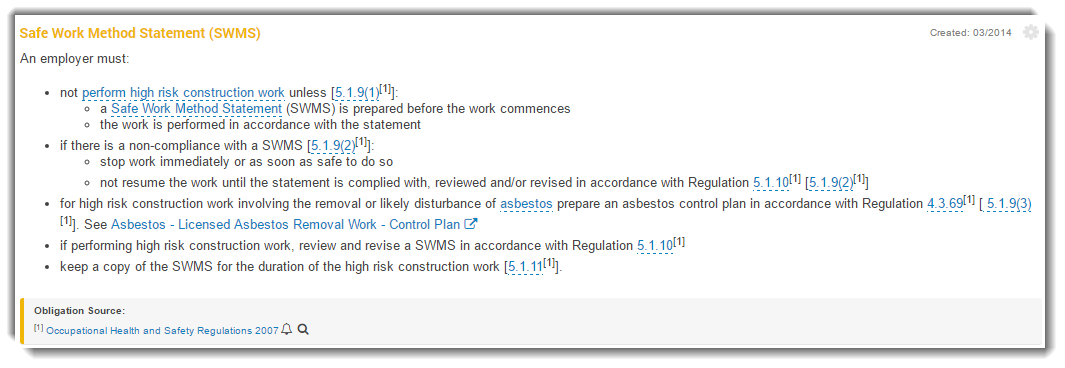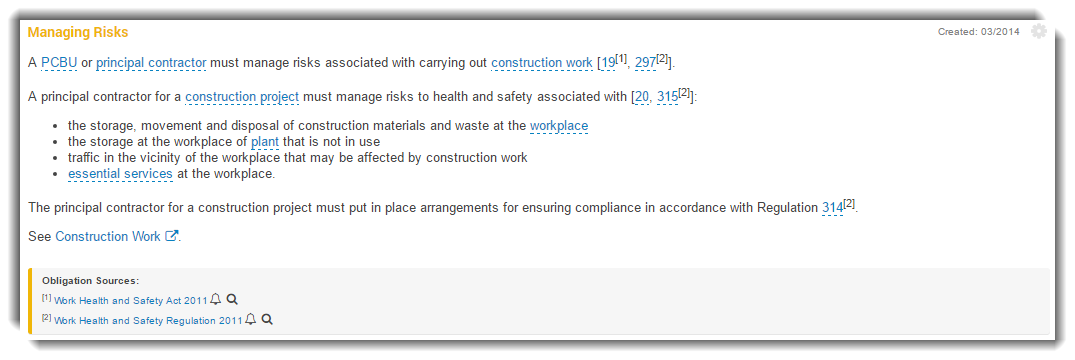Look out for your workers and know your requirements against falls
In the most recent Construction Industry Profile, published by Safe Work Australia, falls from height was the highest cause of fatality and falls, trips and slips was the second highest cause of injury.
Legal obligations against falls ensure workers and companies are operating within the mandatory measures and risk management procedures to prevent and/or reduce the risks of falls of more than 2 metres.
SafetyLaw helps you understand and stay compliant with your state/territory legislation against falls, so you can keep your workers safe and avoid the following situations:
The issue: Construction company to pay $27k for sub-contractor’s fall
A construction company has been fined $25,000 and ordered to pay costs of $2,000 after a sub-contractor fell 5 m from scaffolding onto a concrete floor. The company had engaged sub-contractors to erect the scaffolding but had failed to ensure it was complete, correctly erected and safe before allowing people to use it. More
The solution: A simple search under the Construction category will outline requirements for high risk construction work

The issue: Steel company fined $40k for truck driver injury
A steel company has been fined $40,000 after a truck driver fell while unloading steel from his trailer. The business was found not to have adequate work procedures in place for falls from heights, or correct work procedures for unloading steel on site. More
The solution: A quick search under the Risk Management category will outline the requirements an employer needs to adhere to in order to prevent hazards such as falls

How will SafetyLaw help you achieve success in your role?
Along with access to legislation for falls, SafetyLaw contains plain English summaries for more than 200 pieces of Australian and New Zealand OHS/WHS legislation which are updated monthly, guaranteeing you have the latest legislation at your fingertips.
- Understand, clearly define and communicate role assignments.
- Conduct internal audits against current legislation using our Checklists feature.
- Prepare straightforward induction and training programs.
- Advise management of any upcoming changes in OHS/WHS legislation.